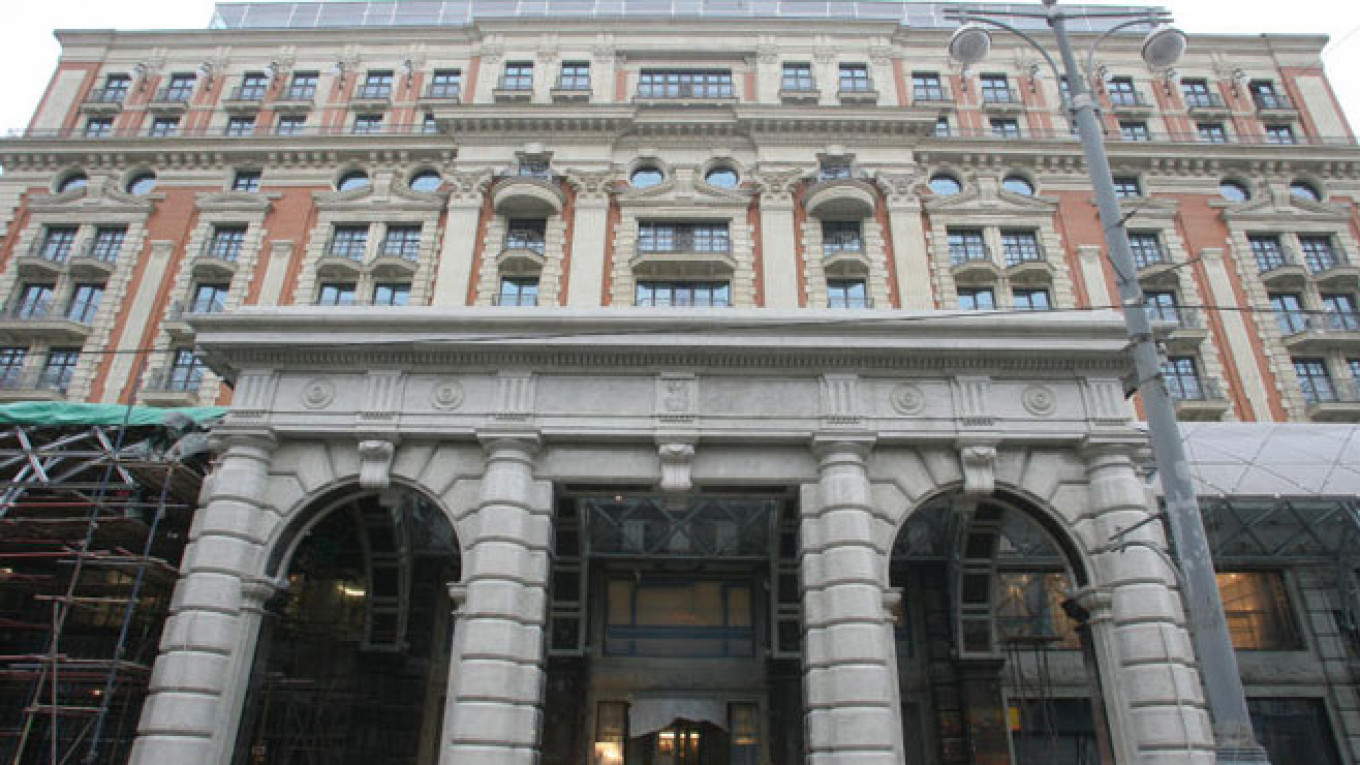Investment in Russian real estate fell nearly 60 percent in the first half of this year amid looming economic stagnation, volatility in the ruble exchange rate and uncertainty emanating from the crisis in Ukraine, according to a report by consultancy Jones Lang LaSalle.
"Investors remain cautious, which is driving down investment volumes relative to 2013," said Tom Mundy, head of research at JLL for Russia and the CIS.
Investment plummeted at the start of the year but has recovered slightly, rising from $545 million in the first quarter — a 73 percent decrease from 2013 — to $842 million in the second, a drop of 36 percent.
JLL earlier slashed their forecast on commercial real estate investment in Russia to $3.4 billion, down from a forecast of $7 billion at the beginning of the year.
This figure is not expected to improve, particularly in light of investors' concerns over the potential impact of further international sanctions against Russia, Mundy said.
Following Russia's annexation of Crimea in late March, the U.S. and European Union struck back with sanctions targeting a series of Russian officials, businessmen and companies with close ties to the Kremlin.
The international crisis hit the ruble as hard as it hit investor confidence: by the time President Vladimir Putin signed the annexation document, the ruble had weakened more than 10 percent against the dollar since the beginning of the year, spooking many investors in Russia's import-heavy retail sector.
Their nerves have had no chance to recover, as the U.S. and EU continue to reiterate threats of expanding the sanctions to sector-wide measures if peace efforts fail in eastern Ukraine, where the West accuses Russia of fomenting unrest.
But while real estate investment may be crushed this year by the menace of sanctions and economic growth forecasts that wobble around 0.5 percent, the market is likely to rebound in 2015.
"The Russian commercial real estate market is generally in pretty good health, having restructured well following the 2008 crisis and benefiting from a fundamental undersupply of quality stock. So after the disappointment of 2014, 2015 may prove a very strong year," Mundy said.
The hotel and office segments are leading for investment this year, with 37 percent and 24 percent of the total volume respectively. A single deal, however — the sale of an 84 percent stake of Hotel Company — significantly inflated hotels' share in the market, the study said.
Moscow dominated the market as usual, attracting 85 percent of all investments in the first half of the year. St. Petersburg increased its share slightly — from 5 to 8 percent — leaving Russia's vast regions with a 7 percent share.
A Message from The Moscow Times:
Dear readers,
We are facing unprecedented challenges. Russia's Prosecutor General's Office has designated The Moscow Times as an "undesirable" organization, criminalizing our work and putting our staff at risk of prosecution. This follows our earlier unjust labeling as a "foreign agent."
These actions are direct attempts to silence independent journalism in Russia. The authorities claim our work "discredits the decisions of the Russian leadership." We see things differently: we strive to provide accurate, unbiased reporting on Russia.
We, the journalists of The Moscow Times, refuse to be silenced. But to continue our work, we need your help.
Your support, no matter how small, makes a world of difference. If you can, please support us monthly starting from just $2. It's quick to set up, and every contribution makes a significant impact.
By supporting The Moscow Times, you're defending open, independent journalism in the face of repression. Thank you for standing with us.
Remind me later.


